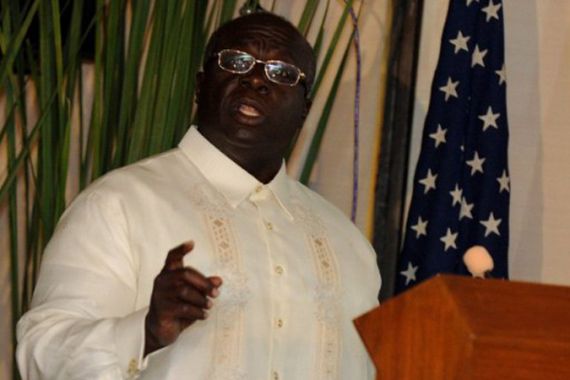US regret over Philippines sex tourism claim
US ambassador apologises by text message for controversial remark on prostitution in the Philippines.

 |
| Harry Thomas’ remark came amid efforts by the Philippine government to revamp its tourism industry [EPA] |
The US ambassador to the Philippines has apologised for controversially commenting that many male tourists visit the country for sex, the Philippine foreign ministry said.
Harry Thomas, the US envoy, expressed regret for his comment to Albert del Rosario, the Philippines’ foreign affairs secretary, on Friday via a mobile text message, the ministry’s spokesman said on Saturday.
“Sir: Thanks again for taking time to meet with me twice this week. I am sending you a response expressing regret for my comments. I should not have used the 40 per cent statistic without the ability to back it up.
| Al Jazeera’s Marga Ortigas reports on the debate over prostitution |
“I regret any harm that I may have caused,” said Thomas’ message, according to Raul Hernandez, the spokesman.
Hernanadez said the ministry took the apology as the ambassador’s wanting to put closure on the issue, and that the Philippines too wanted to put the matter to rest and move forward.
He stressed that the US had a been a firm partner in the Philippines’ fight against human trafficking and that Thomas had been “closely working with the Philippine government in addressing the grave challenge of human trafficking in our country,” Al Jazeera correspondent Marga Ortigas reported.
Last month, Thomas sparked outrage when he said: “Forty percent of foreign men who come to the Philippines, including from the US, come for sex tourism.”
The ambassador’s claim about sex tourists came amid Philippine government attempts to revitalise the country’s tourism industry, which for years has lagged behind other Asian countries.
The Philippines recorded an all-time high of 3.52 million visitors last year and the government is aiming for six million tourists a year by 2016.